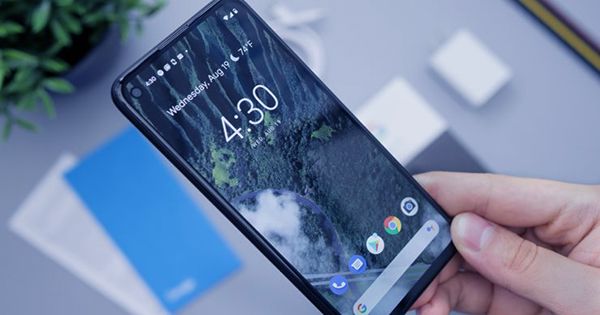Welcome back to This Week in Apps, the weekly TechCrunch series that recaps the latest mobile OS news, mobile applications, and the overall app economy.
The app industry continues to grow, with a record 218 billion downloads and $143 billion in global consumer spending in 2020. Consumers last year also spent 3.5 trillion minutes using apps on Android devices alone. And in the U.S., app usage surged ahead of the time spent watching live TV. The average American watches 3.7 hours of live TV per day but now spends four hours per day on their mobile devices.
Apps aren’t just a way to pass idle hours — they’re also a big business. In 2019, mobile-first companies had a combined $544 billion valuation, 6.5x higher than those without a mobile focus. In 2020, investors poured $73 billion in capital into mobile companies — a figure up 27% year-over-year.
This Week in Apps will soon be a newsletter! Sign up here: techcrunch.com/newsletters
Android App Bundles are now going to be required.
This week Google announced it would require new apps to be published using the Android App Bundle in August 2021. The company first launched the Android App Bundle standard, which replaces the APK, in May 2018 as part of its modern development push. Since then, most of the top 1,000 apps and games have switched to AABs, including those from Adobe and Duolingo. Gameloft, Netflix, reBus, Rainy, and Twitter. Today, over 1 million apps are using AAB in production.
AABs solve some problems with the aging APK standard, particularly around larger apps and games. With AABs, developers don’t have to create an APK containing everything for every Android device. They offer a way to download the assets needed for a particular device quickly and more efficiently. They do so in a way that focuses on getting the user or player to the app or game’s content as fast as possible.
But not everyone agrees the change is for the better. Those who utilize APK Hosting sites like APKMirror or APKPure to download and share apps worry that the shift to AAB is a way to force users to use the Play Store instead of alternatives. Meanwhile, Epic Games founder and CEO Tim Sweeney — who is taking on tech giants over their alleged app store monopolies with both lawsuits and lobbying — pointed out that the move away from the more open APK standard is about locking users into Google Play.
Consumer Spending on apps hits a record $64.9B in the first half of the year.
According to preliminary data from app store intelligence firm Sensor Tower, consumer spending in mobile apps hit a record $64.9 billion in the first half of 2021. This figure represents a 24.8% increase in spending seen across both the App Store and Google Play, compared with the year-ago period. But while industry experts believe the accelerated shift to mobile fueled by the pandemic is a trend that will continue, it’s worth noting that — despite the new record — the growth rate for consumer spending has slightly slowed, and the download growth slowed more dramatically.
From the first half of 2019 to the first half of 2020, consumer spending on mobile apps grew 28.4% from $40.5 billion to $52 billion, for comparison — slower than the 24.8% seen in the current period.
